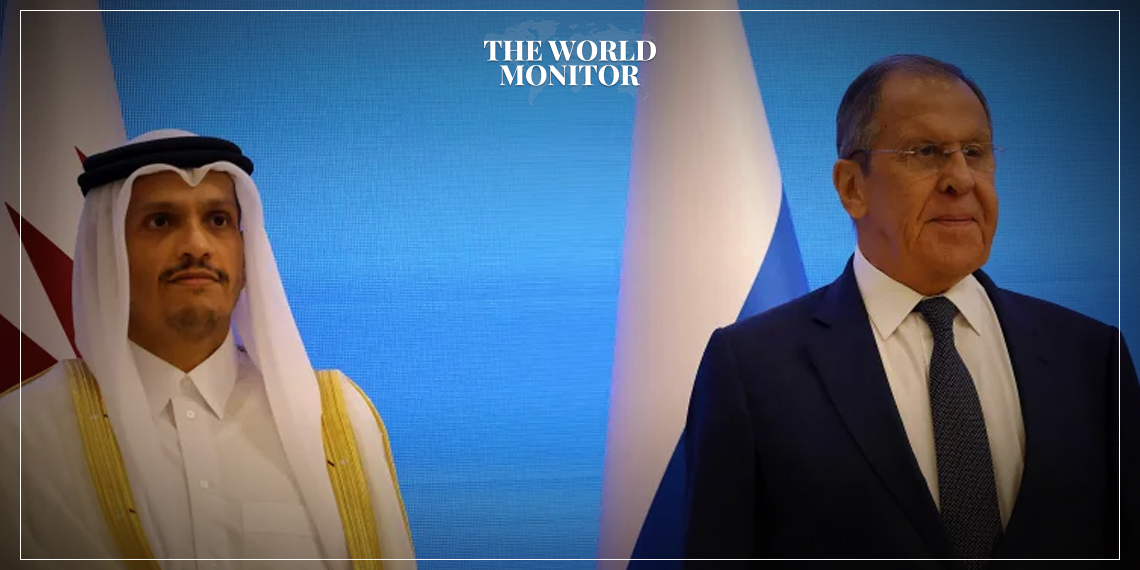Qatar’s Prime Minister and Minister of Foreign Affairs, Sheikh Mohammed bin Abdulrahman Al-Thani, emphasized his country’s stance against any attempts to alter the demographic or regional makeup of Gaza.
He expressed Qatar’s reliance on regional and international partners to enforce a ceasefire in the region.
During the opening of the ministerial meeting for the Gulf Cooperation Council (GCC) and Russia’s strategic dialogue in Riyadh, the Qatari Prime Minister highlighted the importance of implementing steps toward a two-state solution, ensuring the establishment of a Palestinian state.
Qatar remains firm in its rejection of any changes to Gaza’s demographic structure and continues to support efforts to achieve a comprehensive political solution to the Palestinian issue.
Meanwhile, Russian Foreign Minister Sergey Lavrov warned that the Middle East is on the brink of a major regional conflict.
He emphasized the need for collaborative efforts to prevent such a war and stressed that the region cannot develop stably without resolving the Palestinian problem.
Lavrov acknowledged Qatar’s role in mediating efforts for a political solution in Palestine.
Lavrov also noted the failure of the international community to stop the escalating conflict in Gaza, which has led to widespread instability across the Middle East.
From the borders of Lebanon to the Red Sea, tensions have risen sharply, particularly between Israel and Iran. Lavrov pointed out that the current violence against Palestinians is unprecedented in the history of the Arab-Israeli conflict and blamed certain global powers for obstructing peace efforts.
Despite these challenges, Lavrov affirmed that both Russia and the GCC remain committed to working towards a ceasefire and the establishment of an independent Palestinian state, based on international resolutions.
Before the strategic dialogue began, GCC Secretary General Jassim Al-Budaiwi held talks with Lavrov, where they discussed strengthening ties between the GCC and Russia.
Al-Budaiwi highlighted the importance of enhancing cooperation in areas such as the economy, technology, and trade, which remain a priority for both sides.






